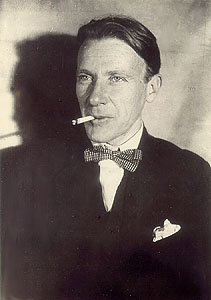This is something I’ve had quite a bit of experience with myself, both through my own early flirtations with Irishness, and through having had the word gypsy flung at me more than once as a kid. I’ve also seen it in Americans. Blacks construct painful fantasy-lands of apartheid culture like Kwanzaa, while many whites will grasp at any straw to deny their Caucasoid status. I’ve lost count of the number of 1/64th Cherokees and Utes I’ve had to humour as they drone on about their native heritage and customs. To my mind, you’re not an Indian if you don’t have a casino, but I accept that these entirely fictional ethnic fig leaves give many an oppressed white an excuse to whine right back at chippy minorities at parties, not to mention to tick one of the “unsackable” ethnicity boxes on the HR forms at work.
Even I was blindsided, however, by a practical demonstration of this phenomenon with my boys, as a side-effect of our recent trip to Yorktown in Virginia.
Both were born in France, to an Anglo-Irish-Hungarian union. The elder (who is 6) thinks of himself as an American and gets very upset at any suggestion to the contrary. I always assumed the younger (who is 4) would follow suit, if and when he came to think about such things at all. But while we were watching the mini-documentary in the Yorktown visitors’ centre he abruptly decided that he wanted the British to win, and went into a massive sulk when Lord Cornwallis was marched out in humiliation. As far as I can tell, the root cause of this was that the British were wearing red, which is his favourite colour.
Argument was raging before we even left the museum, ending abruptly in the parking lot when the younger laid the elder out with a right hook. A pattern that has been faithfully repeated on every subsequent engagement.
Any hope that this was a flash in the pan were dashed when we reached the souvenir shop, where the boys almost literally nailed their colours to the mast…

Just as well the little monster wasn’t around in the 1780s, or America might still be British today. And then I’d have to move again…
There’s a good review of the book here if you’re interested. Meanwhile, a very happy Fourth of July to you all!

12 comments:
As a Scot in America, I am often asked by Celtic-Americans why I amn't more anti-English. People seem disappointed that I'm not.
I have a friend who is Anglo-American on her dad's side and Irish American on her mother's side, went to Catholic school in LA and undeniably feels a strong kinship with all things Irish. A bunch of Irish, Scottish and English friends of mine were staying with us and we had a party to which my Irish-American friend came too. She immediately felt drawn to my Irish pals and chatted quite a bit to them. When she left Irish pals asked who the colossal bore had been. She isn't usually a colossal bore, but we could all see that though she identified with the Irish and Scots, all we could see was another American who had very little shared experience with us.
My question is this: if someone feels true membership in a cultural group or identity, do they belong because identify themselves as such, or must the group also recognise her? Is belonging a reciprocal thing or simply a claimed thing?
My kids will be Scottish-American and they have already spent a good deal of time in the Hebrides which is a culture apart again from mainland Scotland. I wonder how they will view themselves and how much it will matter. For myself, I will always be Scottish first, American second. I hope my girls will be American first. Shared recent history seems more important than shared old history. Emerson says there is no real history, only biography and that every mind must revisit it all by itself, cover all the ground again. He says that we are all part of a kind of universal mind of man and all cultures simply incarnations of that. I think my friend is intuitively looking to her ancestors accumulated knowledge to learn what they learnt. Nothing wrong with that as far as I can see. If you can only get your chosen people to accept you as their own. In the end, it seems it doesn't matter if she's "really Irish" or what the Irish think of her. In her day to day life, the knowledge and lessons she's had from reading about her family's history will increase her share of the accumulated historical knowledge and will play out in her own life. Isn't that all that matters, not the impetus for seeking the knowledge out? She is only guilty of wanting to belong.
I'm squiffy tonight. And looking back at this, a colossal bore too. Sod it.
Happy 4th, Ivan!
Belonging absolutely is a reciprocal thing. Claiming kinship with a group without recognition from the group is just delusion.
I think your american friend was simply doing what Ivan is describing in his post, trying to claim some sort of belonging to a particular cultural subgroup in order to help define her identity in her own mind. It is a tendency particularly developed in americans. I think it has to do with the huge size of the population, pushing people to seek particular cliques in order to differentiate themselves from the mass, and also feel part of a particular subculture that can provide specific traditions and guidelines to make life less scary and open-ended. It isn't restricted to ethnic background; I think all the over-the-top obsessions with things like Star Trek or some specific baseball team is just an expression of the same need.
Don't worry, Sam - it's a good post. Your friend is another example of the tendency to voluntarily load oneself up with centuries-old biases and grudges. In fact historical grudges seem to be a prerequisite - otherwise why are there no "English-Americans"?
To answer your question, I don't think that she needs her chosen identity to be "validated" by anyone else for it to be real to her. But then again, she's not claiming Irishness (even if she thinks she is) - the identity she's happened upon is Celtic-American, which as you say has and requires very little common ground with life in rural County Laois, for example. But an invented identity is as powerful as any other once it starts directing people's actions, and it can be the work of a moment to create.
JB - you make an interesting point about Trekkies, but I'm not sure it's exactly the same thing. Being a Trekkie is surely unambiguously about community - you don't dress up as a Klingon on your own, after all. But claiming an ethnicity is often a romantic or defiant act which deliberately marks you out from others, rather than binding you to them. If reassurance is the aim, why choose a minority identity over the majority? Unless it's just that people are weird...
I suppose it's only natural that expats should brood on this point more than most :)
As for your lads, just synthesize their beliefs by pointing out that what ended in Philadelphia started at Runnymede.
That'll keep 'em quiet for a bit, I think.
Happy Independence Day.
Cheers
What a little darling. Big kiss from me - to all the kids. Something must have captured his imagination and it would be sad if you didn't retain some of your Britishness in the vast melting pot. We're not all bad and personally I think all this apologising for past wrongs is meaningless amd a load of cods wallop. Just do better in the future and learn from mistakes say I. God knows I try to.
Happy fourth all: we commemorated it on the BBC by playing that haunting tune'America' by that couple who wrote that boring dirge 'Bridge Over Troubled Waters' Anyone remember?
Thanks, Randall - I certainly will, when they're ready for it. But by that stage they'll both be American to the bone anyway, I'm sure.
And Pi, there's no danger of us leaving our British influences behind entirely. My accent will see to that, if nothing else. As I tell the boys now, Britain and America have been friends for a good hundred years now, so there's no need to fuss over those two flags...
Born in London, I'm third generation Irish on both sides, have red hair, freckles and a typical Oirish temperament, but never been to the Emerald Isle and no particular feelings of Irishness beyond a liking for Riverdance and a tendency to drink a bit too much on occasion. If my grandfathers felt they didn't want to live there any more, that's good enough for me.
Your youngest sounds like he's got a good idea for a new political party there - revoke the Declaration of Independence, and put the Brits back in charge. Can't be worse than what you've got at the moment. Much.
If you asked him now, yes, Daphne, but by the time he's grown I suspect it will be a very different story. He's not the type to bow the knee to anybody. He's a born libertarian, unless I miss my guess, just like his grandfather. He'll be a handful as a teenager, but once he's grown I know I'll never need worry about him...
I´m Hungarian living in Denmark, my wife is german, our two kids are adopted Koreans. My best friend is form Thorshavn. His name is Mcarine and he is half Scottish.
And I´m rooting for Franze at the World Cup.
And I live in Vanløse - you know from Van the Mans "Vanloese Stairway". So yeah, I feel a little bit Irish !.
An impressive mix, there, SoD. I'm puzzled to see the link with supporting France in the World Cup, but on the whole I approve, given the opposition.
Still, makes me wonder if you're really Hungarian. Surely no true son of the puszta would support the Frogs after Clemenceau screwed you in 1919?
I knew you were a Romanian, Canty :)
Moldovan, Romanian - tomayto, tomahto...
Post a Comment